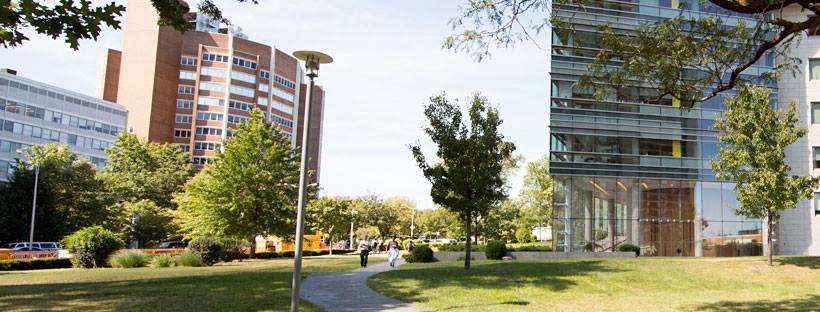When Salvatore Calabro, director of graduate admissions and enrollment for graduate programs in the biomedical sciences at Albert Einstein College of Medicine, found out that Liaison was considering launching a Centralized Application Service (CAS™) for biomedical sciences programs, he saw it as an opportunity for his institution to improve the admissions process for everyone involved. “With our previous admissions solution, there were some limitations as far as functionality and ease of use for the applicants, admissions staff and the faculty.”

According to Calabro, getting applications to faculty quickly for review was one of his main priorities. “That was something we wanted to do better.” Capturing detailed information about student research experience was also critical, along with attracting a diverse and highly qualified applicant pool. “We’re part of a consortium, BioGAP, that lets us benchmark our admissions and enrollment against other schools. We wanted to be able to harness that sort of power and formalize it in our admissions process,” said Calabro. “BioMedCAS™ gave us the opportunity to do that.”
BioMedCAS™: An Efficient, Easy-to-Use Application and Review Tool
As one of the founding members of BioMedCAS and an active member of the service’s advisory board, Calabro said he appreciated the ability to collaborate with admissions professionals from other schools to determine how to phrase certain questions on the application. “Other CASs had already figured out how to best ask the basic biographical questions, so we were able to focus our efforts on the specific questions related to the biomedical sciences,” he said.
Calabro pointed out that BioMedCAS also reduces the burden on faculty members providing recommendations for applicants. “Recommenders aren’t often considered in the admissions process, but in the biomedical sciences, they play a big role — research-based programs are looking for letters from faculty students worked with directly. To help get the student into a good school, sometimes they have to submit letters to 10 different schools, and these are busy people,” said Calabro. “With BioMedCAS, they’re able to submit just one letter for all the programs.”
Albert Einstein College of Medicine’s Outcome with BioMedCAS
“We’re seeing great applications come through BioMedCAS,” Calabro said. Attracting underrepresented students to the sciences is a priority, and the College has maintained a diverse applicant pool and continues to attract a broad range of applicants. “We were excited to be able to pool with other schools nationally — BioMedCAS offered something very different than a standalone application hosted within our graduate school.”
Implementation was “simple, easy and smooth,” Calabro said. “When people think about adopting a new system, they get scared, but with this, you probably have people on your campus that already know how to use it,” Calabro said. “We’re looking forward to growing the CAS and getting other biomed programs involved.”
